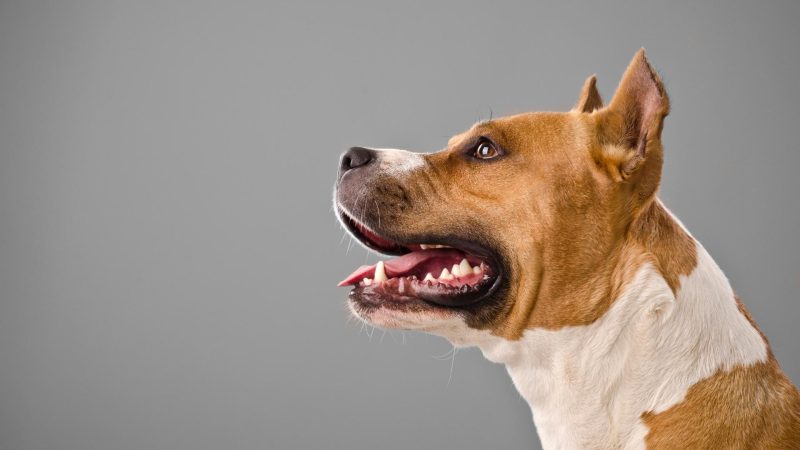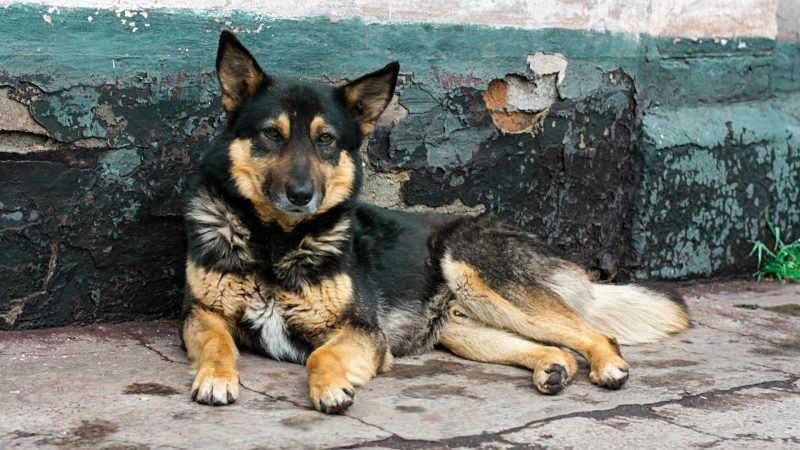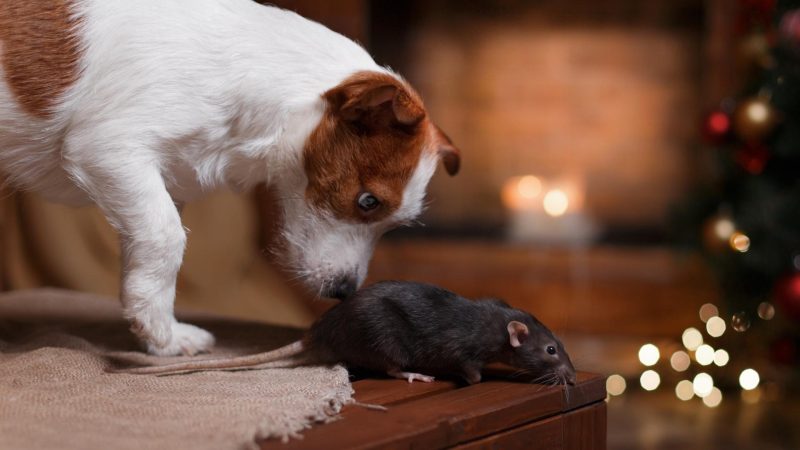Rat poison or rodenticide can’t only harm rodents but other animals, specifically mammals. It’s toxic by merely touching and breathing it in.
Besides being careful in handling rat poison, you should let your pet dogs stay away from it. If you don’t know the consequences when a dog eats rat poison, this article will show you.
How to tell if your dog ate rat poison? The effects of rat poison on dogs vary since there are different types. Some rat poisons are formulated as a single dose, while others gradually deliver the effects. Signs that your dog ate rat poison will show up in three to five days. The common signs are as follows labor breathing, weakness, internal bleeding, firm and swollen abdomen.
At some point, some of these signs may happen because of other reasons. To understand better and know pretty well that your dog ate rat poison, continue reading.
Table of Contents
What Is Rat Poison?

Rat poison or rodenticide is an insecticide to eliminate rodents such as beavers, chipmunks, mice, porcupines, rats, squirrels, nutria, and woodchucks. Rodents are mammals, just like dogs and humans, so all of them are affected by the same insecticides.
At the same time, animals are attracted to rat poison since it has flavors of molasses, peanut butter, or fish oil.
In the United States, there are various active ingredients of registered rat poisons. There are also variations in their appearance as they can be in pellets, grains, blocks, liquids, and gel.
Although some may look similar, they can be identified based on their contents. A study about rodenticide toxicity groups the ingredients in three levels.
- Danger/highly toxic – Aluminum phosphide, arsenic, barium carbonate, elemental phosphorus, sodium monofluoroacetate, strychnine, thallium
- Warning/toxic – ANTU or alpha-naphthyl thiourea, cholecalciferol
- Caution/less toxic – Anticoagulants like superwarfarins and warfarins, bromethalin, norbormide, red squill
Is Rat Poison Harmful to Dogs?
Since rats and dogs are mammals, they’re both intoxicated by the same substances. A study has proved that bromethalin has brought fatality to a seven-month-old dog.
What Would a Rat Poison Do to a Dog?
Rat poison can cause internal bleeding in a dog. Moreover, it can lead to death if not given a solution immediately. This fatality can also happen through secondary poisoning, which is when a dog eats a rat that has rodenticide in its stomach.
How Much Rat Poison Can Kill a Dog?
There are various kinds of rat poison, so the one that can kill a dog depends on the amount that was consumed. If you have the notion that your dog has eaten rat poison, take it to the vet right away to shorten the time between contact and treatment.
Quick action is essential since the amount of rat poison eaten by a dog can’t be detected.
Signs of Rat Poisoning in Dogs

Because of internal bleeding caused by rat poison in dogs, here are some signs:
- Labored breathing – You should be able to identify the breathing of your dog. If it has ingested rat poison, the breathing becomes heavy and labored.
- Weakness – Once you notice the labored breathing of your dog, weakness or lethargy follows. When this happens, you need to take your pet to the vet.
- Internal bleeding – One of the signs of rat poison is internal bleeding or hemorrhage. To figure this out, inspect your dog’s urine and tool for the sign of blood. The gums bleed as well, so you need to check them. They may also turn pale. Nose bleeding may occur as well.
- Firm, swollen abdomen – Due to internal bleeding, the mid-part of a dog becomes firm and swollen.
What to Do if a Dog Eats Rat Poison?
Induce Vomiting
Once you think that your dog ingested rat poison, you have to work on inducing vomiting so you can take toxic substances out of its body. Give your dog hydrogen peroxide, which you can get with no restriction from pharmacies or even online. Every ten pounds of the dog’s weight needs a tablespoon of hydrogen peroxide.
Mix hydrogen peroxide with water, then put it in a syringe to administer. If the effects are not noticeable after 15 minutes, give your dog another dosage. When there’s no improvement, you have to reach out to the veterinarian.
Injecting Vitamin K
This is the option if your dog doesn’t vomit. Rat poison is recognized as an anticoagulant, a substance that stops blood from clotting. When non-stop bleeding is experienced by your dog, Vitamin K will help you since it’s a blood-clotting agent. It also gives off prothrombin, which encourages blood clotting.
Act Fast
Whether your pet dog has eaten rat poison or is a victim of secondary poisoning, you must act fast by calling the vet. It’s best to give the medication as early as possible, so recovery happens quickly.
How Is Rat Poisoning in Dogs Treated?

The right treatment is determined after identifying the type of rat poison.
Anticoagulant (Brands: Bell, Final Strike, Generation, Havoc, JT Eaton, Rodex, Talon)
A vet prescription of Vitamin K1 is essential as the over-the-counter kind is not enough. Most dogs need this supplement for a month after the ingestion of rodenticide.
Bromethalin (Bell, Montomco, Neogen)
Since there’s no specific antidote for this substance, you have to follow some methods to remove the toxins inside your dog’s body. Forcing your dog to vomit is one method.
You can also induce the bowel activity of the dog by administering osmotic cathartic and activated charcoal. The vet would recommend muscle-relaxant and anti-seizure medications. Furthermore, treatment can last for weeks.
Cholecalciferol (Brands: Bell, d-Con, Montomco, Quintox)
Unfortunately, there’s no ultimate treatment to reverse the symptoms of cholecalciferol for good. The goal, in this case, is to make the calcium level normal. To achieve it, IV fluid injections should be administered to clean the kidney. The dog is usually hospitalized for several weeks.
Phosphides (Brands: Montomco, Prozap)
The first step in fighting phosphides is to refrain from feeding your dog. It should be done as food consumption only boosts toxic gas inside the stomach. It means that the poisoning can get worse. Since there’s no specific remedy for this case, you have to seek a vet’s advice. IV fluid flushes and antacids are prescribed besides making your dog vomit and pumping its stomach.
What Can You Give a Dog That Ate Rat Poison?
You can give your dog hydrogen peroxide mixed with water to induce vomiting. This way will expel the poison out of the dog’s body. When bleeding occurs, you have to instead give your dog Vitamin K.
How Do You Flush The Poison Out of a Dog’s System?
To flush the poison out of a dog’s system, you have to induce vomiting and make them poop.
How Can I Prevent Rat Poisoning in Dogs?
1. Not Using Rat Poison
Rats can be a nuisance, but there are other ways to control them apart from using rodenticides. So you won’t put your dog at risk of eating rat poison.
2. A Rat Trap Should Be Inaccessible for Dogs
Setting the rat trap is not something to worry about if you have a large dog. But you have to be creative when you have a small one since it can reach things hidden in a constricted section with its small paws.
3. Locking Rat Poison in a Cage
It’s fine to lock rat poison in a cage as long as it’s big enough for the rats, but it should prevent the dogs from inserting their paws.
4. Looking After Your Dog
Dogs are always curious, so you have to look after them whether they’re outdoors or indoors. You should know what they touch and encounter. The incidents of dog poisoning have been on the rise since 2012 as stated by the veterinarians from the University of California. If your dog acts strange, it’s best to call your doctor to apply for immediate medication.
Can a Dog Recover From Poisoning?
A dog can recover from poisoning as long as you act quickly. That’s why you have to contact your veterinarian for an immediate response.
Are Rats Poisonous to Dogs?

Rats are poisonous to dogs if they have eaten rat poison.
Summary
You can tell if your dog ate rat poison by the common symptoms such as weakness, difficulty breathing, and internal bleeding with a firm, swollen abdomen. To save your dog’s life, you have to act fast in finding the proper treatment. If you’re not sure about it, it’s best to contact the veterinarian for advice.